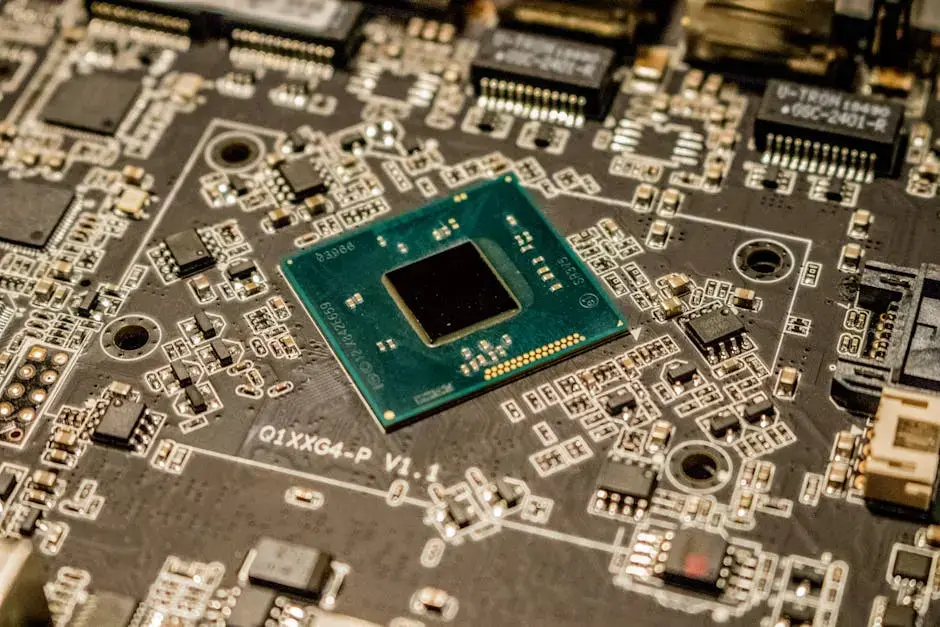5 Key Benefits of Precision Automation for Your Manufacturing Process
- AAAPlus Automation
- Apr 2, 2024
- 4 min read
Introduction to Precision Automation in Manufacturing
Precision Automation in manufacturing refers to using advanced technology to streamline and optimize production processes. It involves integrating machines and robotics to perform tasks with high accuracy and efficiency. Here are five key benefits of Precision Automation for your manufacturing process:
Increased Efficiency: Automation helps in reducing human error and speeding up production processes.
Cost Savings: By automating tasks, you can lower labor costs and minimize waste, ultimately saving money.
Improved Quality: Precision Automation ensures consistency in production, leading to higher quality products.
Enhanced Safety: Machinery can handle dangerous tasks, keeping your workers safe.
Higher Output: With automation, you can increase your production capacity and meet demands more effectively.

Increased Efficiency Through Precision Automation
Precision automation can boost your manufacturing process's efficiency significantly by streamlining tasks and reducing errors. With precision automation, you can expect:
Faster production cycles and reduced downtime.
Consistent and accurate results leading to higher product quality.
Improved resource utilization by optimizing workflow processes.
Enhanced safety measures due to fewer manual interventions.
Overall cost savings in the long run as a result of increased productivity.
Cost Savings with Precision Automation
Precision automation can help in cutting costs significantly for your manufacturing process. By incorporating automation, you can reduce expenses related to labor, errors, and inefficiencies. Here are a few key areas where cost savings can be achieved through precision automation:
Reduced Labor Costs: Automation can perform tasks that would otherwise require human workers, leading to savings on labor expenses.
Minimized Errors: Automation can minimize errors and rework, decreasing the costs associated with defects and quality control.
Enhanced Efficiency: Automated processes can operate faster and with consistent accuracy, optimizing production efficiency and ultimately lowering operating costs.
Investing in precision automation for your manufacturing process can lead to substantial cost savings over time.
Improved Product Quality with Precision Automation
When you implement precision automation in your manufacturing process, you can expect a significant improvement in your product quality. Here are the key benefits:
Enhanced Precision: Precision automation ensures that the manufacturing process is carried out with high accuracy, minimizing errors and defects in the final product.
Consistent Performance: With precision automation, you can maintain consistent quality standards throughout the production process, leading to uniform and reliable products.
Reduced Variability: Automation helps in reducing variability in the manufacturing process, resulting in products that meet exact specifications each time.
Faster Production: By eliminating manual processes and streamlining operations, precision automation can help speed up production without compromising quality.
Quality Control: Automation systems often come equipped with quality control mechanisms that detect and address any deviations from set standards, ensuring that only top-notch products reach the market.
Enhanced Safety Measures in Manufacturing
Manufacturing businesses are using precision automation to enhance safety measures for workers. With the automation of tasks like heavy lifting and repetitive movements, employees are at a lower risk of injuries. Automation also reduces human errors, contributing to a safer work environment. Safety sensors in automation equipment can detect potential hazards and prevent accidents. Moreover, automated processes can operate in hazardous conditions without risking the safety of workers. The overall result is a safer workplace that prioritizes employee well-being.
Streamlining Workflow Through Precision Automation
By streamlining your workflow with precision automation, you can increase efficiency and productivity in your manufacturing process. Precision automation helps eliminate errors and reduce manual labor, allowing your team to focus on more critical tasks. With streamlined workflows, you can ramp up production speeds and meet tight deadlines more effectively. This technology also enhances product quality, ensuring consistent results each time. Moreover, precision automation minimizes downtime, keeping your manufacturing process running smoothly without interruptions.
Implementing Precision Automation Technologies
Incorporating precision automation technologies into your manufacturing process can bring you several advantages. Precision automation can enhance the accuracy and efficiency of your production, leading to higher quality products. It can also streamline your operations, reducing the risk of errors and increasing productivity. Moreover, precision automation technologies can help you meet tight deadlines and improve overall customer satisfaction. By embracing precision automation, you can stay competitive in the market and adapt to the ever-evolving manufacturing landscape.
Real-Life Case Studies of Precision Automation Success
In real-life case studies, many manufacturing companies have reported significant benefits from implementing precision automation. Here are some examples of how precision automation has led to success in manufacturing processes:
Improved Product Quality: Precision automation ensures consistent and precise production, resulting in high-quality products.
Increased Efficiency: Automation speeds up processes, reduces errors, and improves overall productivity.
Cost Savings: Companies have reported reduced labor costs and decreased waste through automation.
Enhanced Safety: Automation can handle dangerous tasks, keeping workers safe and reducing workplace accidents.
Flexibility and Adaptability: Automation allows for quick adjustments to production demands, making it easier to respond to market changes.
These real-life examples showcase the tangible benefits that precision automation can bring to your manufacturing process.
Overcoming Challenges in Precision Automation Integration
To successfully integrate precision automation into your manufacturing process, you may face challenges related to technology compatibility, training your staff, and ensuring a smooth transition. Additionally, you might encounter issues with system downtime during implementation and the need for continuous maintenance to keep the automation running efficiently. Your approach to overcoming these challenges will play a crucial role in maximizing the benefits of precision automation for your manufacturing operations.
Conclusion: Future of Manufacturing with Precision Automation
In conclusion, precision automation is shaping the future of manufacturing. With advanced technology, manufacturers can achieve higher efficiency, improved accuracy, and enhanced productivity in their processes. By incorporating precision automation, businesses can streamline their operations, reduce human error, and stay competitive in the market. Embracing this trend can lead to cost savings, increased output, and better quality products. Manufacturers who invest in precision automation today are paving the way for a more innovative and efficient manufacturing industry tomorrow.







Comments